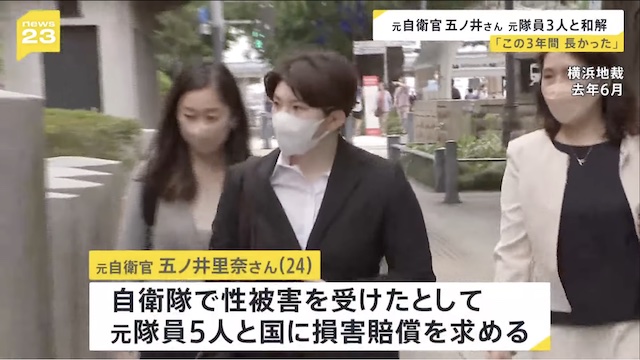YOKOHAMA, Jul 10 (News On Japan) - In a lawsuit where former SDF member Rina Gonoi sought damages from five former colleagues and the state for alleged sexual assault by male SDF members, Gonoi announced on Tuesday that she has reached a settlement with three of the five.

Former SDF member Rina Gonoi filed a lawsuit seeking 7.5 million yen in damages from five individuals and the state, alleging that she was sexually assaulted, including being touched and pushed down, by five male members stationed at the Koriyama Garrison of the Ground Self-Defense Force between 2020 and 2021.
According to Gonoi's lawyer, in February this year, three of the five former members offered to settle through their lawyer, and a settlement was reached today (9th) under the conditions of an apology to Gonoi and payment of a certain amount of money.
Gonoi had already reached a settlement with another former member in October last year and commented, 'These three years have been long,' 'This is a temporary closure, but the lawsuit with one more person and the state continues.'
Source: TBS















